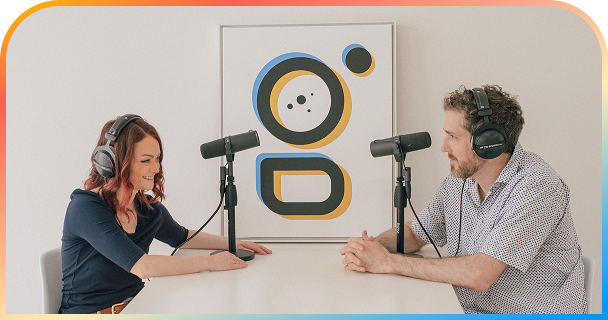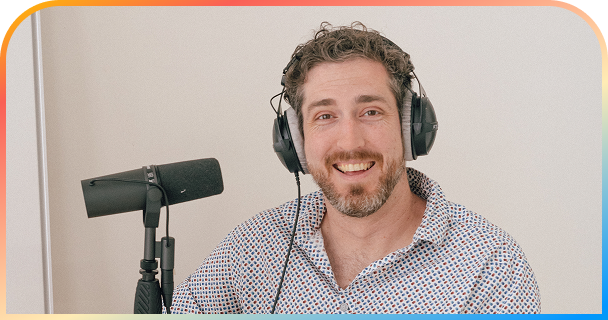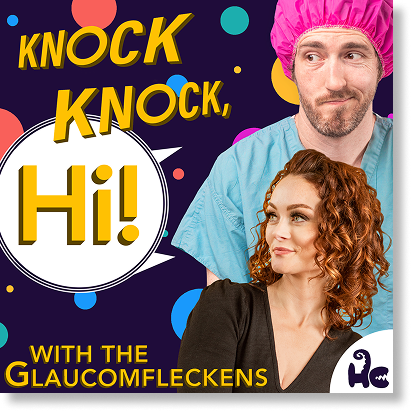Knock, Knock, Hi!
It's the Glaucomfleckens, and we've got your new favorite medical podcast.
Our show is a weird and wonderful combination of science, humor, and heart. With Will’s experiences as both a doctor and a patient, and Kristin’s as a co-survivor of not just Will’s personal health crises, but also med school and residency, we explore the highs, lows, and WTFs of healthcare.
Watch Our Latest Episode On YouTube
Two Podcasts In One
Join us for two episodes each week! On Tuesdays, Will and Kristin sit down together (and sometimes with a guest!) to explore stories across the world of healthcare. Then, Will drops in on Thursdays to brain-dump everything he knows about ophthalmology.
Whether you work in the medical field, live life alongside someone who does, or broke your arm once and are still paying off your medical bills – our show is a must-listen. Especially if you care about eye health.
We talk about:
- All the strange, shocking, and silly happenings of any “normal” day in medicine.
- The medical training years, from pre-med to residency.
- The importance of the patient, family, and co-survivor experience.
- How to work towards a healthcare system that centers people over profit.
- Weird medical stuff, obviously. Especially balls of both an ocular and testicular nature.
- Oh, and we’ve talked to some pretty cool guests, like Dr. Mike and Surgeon General Dr. Vivek Murthy.

TUESDAYS
Glauc Talk
Join Will and Kristin (and guests!) every Tuesday for insightful and hilarious conversations about all things healthcare.

THURSDAYS
Knock Knock, Eye!
This one’s for the real nerds. Join Will on Thursdays for deep dives into ophthalmology topics, from cataracts to Nosferatu’s scary-looking corneas.
Listen to Knock, Knock, Hi!
Apple Podcasts | Spotify | Stitcher | Google Podcasts | iHeart Radio | Amazon Music | Audible | Pandora | TuneIn + Alexa | Podbean | Deezer | PlayerFM | Listen Notes | Samsung | Podchaser | Podcast Addict | Overcast | Pocket Cast | Castro | Castbox
Send a Voicemail to the Glaucomfleckens
Got a burning question for the Emergency Med? Nephrologist? Pediatrician? Ortho? Neurologist? Pathologist? Radiologist? Anesthesiologist? OBGYN? Or even… Jonathan?
By selecting the Opt-In below, I confirm that: (i) I am at least 18 years of age; (ii) I understand that by submitting any personal information related to me, I am granting Glaucomflecken LLC and Human Content, Inc. the right to publish such information on the podcast (i.e., Knock Knock Hi with the Glaucomfleckens); and (iii) agree to abide by the terms and conditions of the Program Disclaimer and Ethics Policy, Verification & Licensing Terms, and HIPPA Release Terms.
Got submissions for the show?
Got questions for us or stories to share? Have insights or answers to on-air questions? Disagree with a game’s winner? Are you a doctor and want to come on? Got a good medical pun? Hit us up!
By emailing Human Content using the button below, you agree to, and have read, our Program Disclaimer and Ethics Policy, Verification & Licensing Terms, and HIPPA Release Terms.

